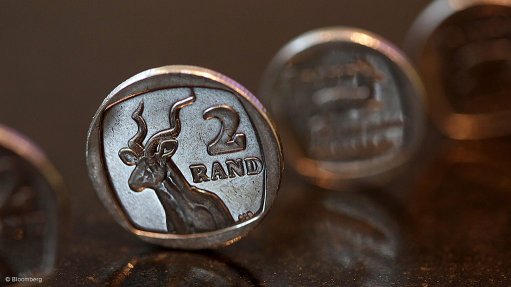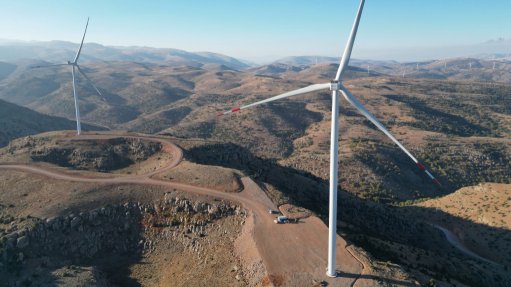DBSA supporting urban development through GEF-funded programme
Development finance institution the Development Bank of Southern Africa (DBSA) has highlighted its role in advancing sustainable infrastructure development in partnership with the Global Environment Facility (GEF) and in collaboration with the UN Environment Programme (UNEP), which is the implementing agency for the project, with the DBSA being the lead implementing agency and the City of Johannesburg (CoJ) the executing agency.
This project supports the CoJ’s long-term sustainability goals, aligning with the development of national and global climate strategies, the DBSA points out.
The GEF-funded programme, Advancing Energy Access and Climate Resilience, incorporates several key levers of system transformation across its five core components, each designed to address Johannesburg’s critical environmental challenges and promote long-term sustainability.
Collectively, the five components of this programme use levers of sustainable infrastructure development, policy reform, circular economy practices, private-sector engagement and data-driven governance to create a holistic and scalable model for urban resilience.
They aim to improve resource efficiency, waste management, urban planning and social equity, fostering a shift towards a sustainable and resilient CoJ.
This programme is highlighted as an integrated approach for the CoJ to drive comprehensive consideration of the city’s specific environmental challenges, existing policy frameworks and institutional capacities.
The DBSA is responsible for a biodegradable waste management and biogas pilot, which introduces circular economy principles as a core transformation lever.
This component specifically focuses on integrating gender-sensitive biodegradable waste management strategies, including waste separation at source, building and operating a waste-to-biogas pilot plant and feasibility studies for city-wide implementation.
This component aligns with the DBSA’s strategy of supporting environmentally sustainable projects and promoting regional integration and cooperation.
The entity highlights the waste-to-biogas plant at Robinson Deep landfill as a key example of this, addressing the environmental hazard of methane generation from decommissioned landfills while exploring alternative waste management strategies.
The project comprises five synergistic components designed to advance sustainable urban development in Johannesburg through a holistic, multisectoral approach.
It prioritises integrating sustainability principles into the city’s physical planning processes while embedding gender-sensitive and resource-efficient guidelines to improve the long-term viability of social housing initiatives.
Earlier this year, the GEF hosted the Expanded Constituency Workshop, bringing together Southern African government officials, multilateral agencies and civil society to strategise on advancing environmental action.
DBSA project preparation acting group executive Lebogang Seperepere emphasised the importance of global partnerships in achieving sustainable development.
“The DBSA is committed to working with global partners like the GEF to address the twin challenges of environmental degradation and climate change. By leveraging our expertise in financing and infrastructure development, we can ensure that projects not only protect our planet but also uplift our communities.”
The DBSA and the UNEP used the event to demonstrate how integrated urban planning can drive multiple community benefits. It included site visits to the various projects to provide on-the-ground context to the GEF-financed programme interventions.
Participants were allowed to engage the implementing partners and local stakeholders to learn how the project addresses multiple urban sustainability challenges.
The site visit to Robinson Deep saw participants take a guided walk to observe various parts of the project site and gain a comprehensive understanding of its operations and its intended outcomes.
The project will use primarily source-separating fruit and vegetable waste feedstock, expected to ensure a sustainable and efficient approach to waste management.
The project uses mesophilic anaerobic digestion to process 50 t/d of waste, producing biogas that yields 340 kW of renewable energy.
The participants also had the opportunity to visit the Roodepoort’s Tshedzani Phase 3 (Social Housing Development), Siyakhana Gardens (Food Resilience) and the Joburg Market (Food Security).
This year, this project’s impact is expected to extend beyond infrastructure, establishing replicable sustainability and resilience standards for Johannesburg and other cities.
Aligning with the Kyoto Protocol’s emissions reduction goals, the DBSA supports this project and others through climate finance and environmentally sound infrastructure, promoting renewable energy and climate resilience, the entity points out.
Article Enquiry
Email Article
Save Article
Feedback
To advertise email advertising@creamermedia.co.za or click here
Comments
Press Office
Announcements
What's On
Subscribe to improve your user experience...
Option 1 (equivalent of R125 a month):
Receive a weekly copy of Creamer Media's Engineering News & Mining Weekly magazine
(print copy for those in South Africa and e-magazine for those outside of South Africa)
Receive daily email newsletters
Access to full search results
Access archive of magazine back copies
Access to Projects in Progress
Access to ONE Research Report of your choice in PDF format
Option 2 (equivalent of R375 a month):
All benefits from Option 1
PLUS
Access to Creamer Media's Research Channel Africa for ALL Research Reports, in PDF format, on various industrial and mining sectors
including Electricity; Water; Energy Transition; Hydrogen; Roads, Rail and Ports; Coal; Gold; Platinum; Battery Metals; etc.
Already a subscriber?
Forgotten your password?
Receive weekly copy of Creamer Media's Engineering News & Mining Weekly magazine (print copy for those in South Africa and e-magazine for those outside of South Africa)
➕
Recieve daily email newsletters
➕
Access to full search results
➕
Access archive of magazine back copies
➕
Access to Projects in Progress
➕
Access to ONE Research Report of your choice in PDF format
RESEARCH CHANNEL AFRICA
R4500 (equivalent of R375 a month)
SUBSCRIBEAll benefits from Option 1
➕
Access to Creamer Media's Research Channel Africa for ALL Research Reports on various industrial and mining sectors, in PDF format, including on:
Electricity
➕
Water
➕
Energy Transition
➕
Hydrogen
➕
Roads, Rail and Ports
➕
Coal
➕
Gold
➕
Platinum
➕
Battery Metals
➕
etc.
Receive all benefits from Option 1 or Option 2 delivered to numerous people at your company
➕
Multiple User names and Passwords for simultaneous log-ins
➕
Intranet integration access to all in your organisation


















